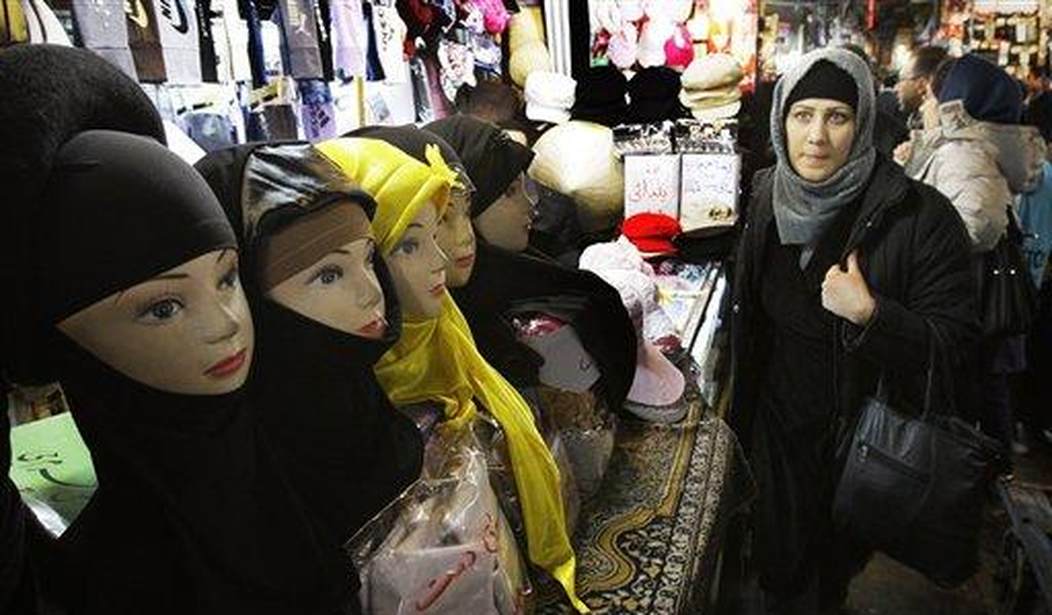Iranian authorities began legal proceedings against a popular singer after his latest song urging women to take off their headscarves was released. The Iranian judiciary announced this action on Sunday.
This crackdown on a pop singer comes almost a year after the death of Mahsa Amini, an Iranian Kurd who died in police custody. She was a 22-year-old woman who was arrested by the Iranian morality police and jailed. Her death triggered months of protests across Iran. The Islamic Republic’s strict dress code requires women to cover their head and neck.
Mehdi Yarrahi is 41-years-old. His new song which was released on Friday is called “Roosarito”, which means “Your Headscarf” in Farsi. The singer expresses his support for last year’s protest movement. The movement’s slogan, “Women, life, freedom” is in the song.
“A legal case was filed against Mehdi Yarrahi following the release of an illegal song which defies the morals and customs of the Islamic society,” the judiciary’s Mizan Online website said.
It was not immediately clear what the formal charges were. Yarrahi was not in custody.
Yarrahi’s three-minute video clip incorporated the protest movement’s slogan, “Woman, life, freedom.”
He calls for women to take off their headscarves and the music video shows short clips of women dancing without wearing headscarves.
Yarrahi’s prosecution will include another song titled “Soroode Zan”, which means Women’s Anthem. It is popular with the protest movement, especially in universities.
He has criticized authorities many times during his concerts. He often refers to the perceived marginalization of people in his native Khuzestan province, with a large Arab minority. He received the prize for best pop singer at the Fair festival in 2018. It is Iran’s most important government-organized musical event.
Last month the morality police relaunched patrols to arrest women who do not properly cover their head (hair) in public. Many Iranian women have grown bold enough to rebel against the dress code since the protests began.
Yarrahi is not in custody and the formal charges are not clear yet.
About a week ago, Iranian authorities arrested 12 women activists in a crackdown before the anniversary of Mahsa Amini’s death.
The 12 women arrested in the Caspian Sea province of Gilan have histories of “anti-security activities,” according to state media reports on a statement by the Intelligence Ministry. The ministry accused two of the women, without presenting evidence, of receiving money and training from Western security services, including Israel’s.
The women’s whereabouts and the exact charges they face remain unknown, and their families have had no contact with them, according to Shiva Nazarahari, an activist based in Europe who works with the Volunteer Committee to Follow-Up on the Situation of Detainees, an informal network that operates inside and outside Iran.
Nazarahari and other activists said the accusations are baseless. It is suppression and intimidation meant to stop protesters from commemorating the first anniversary of Amini’s death, which is next month. “The regime is frightened of the anniversary coming up,” said Hadi Ghaemi, executive director of the New York-based Center for Human Rights in Iran. “It believes there is a large appetite in the country for protests and resistance again. Otherwise, it would not be rounding people up.”
Daily demonstrations have become less frequent but Iran’s clerical leaders have struggled to regain control over Iranians and enforce hijab rules. The country’s economy is collapsing, Iran is isolated on the world stage, and there are water shortages during a summer heat wave.
Morality police patrols have increased. Cameras and other forms of surveillance of women violating hijab rules have increased in recent weeks. Fines have been issued for violations by shopkeepers, teachers, and employers.
Iran’s parliament is expected to pass a more restrictive hijab law codifying stricter practices. There will be strict penalties on those who violate hijab rules or encourage others to do so. Punishments will range from fines to prison sentences and employment and travel bans. The legislation is controversial in Iran because some see mandatory hijab rules as a pillar of clerical power, yet it is losing long-term viability in a society that has been changed by the protests.
“In the past few weeks a new wave of arrests, summons for interrogations, and pressure on citizens, activists, and families of the killed citizens during the protests of the past year has started in different cities” across Iran’s Kurdish areas, said Rebin Rahmani of the France-based Kurdistan Human Rights Network.
In addition, Iran on Wednesday sentenced prominent film director Saeed Roustayi to six months in prison for showing his film “Leila’s Brothers,” a drama set against the backdrop of Iran’s financial crisis, at the Cannes Film Festival last year without official permission. Last month, judges sentenced three prominent activists for not wearing the hijab and declared them “mentally ill,” part of a pattern of “weaponizing” the medical treatment of detainees, according to Ghaemi. Students at universities — which were a beating heart of the uprising — have reported an increase in threatening calls, summonses, and interrogations by intelligence officials ahead of the anniversary, according to campus activists.
The trials of the two Iranian journalists who first broke Amini’s story — Niloofar Hamedi and Elahe Mohammadi — are also ongoing, behind closed doors. They are accused of “colluding with hostile powers” — a charge they deny, according to their families, and which could carry long sentences or the death penalty.
Progress is slow. It is often deadly when an activist is jailed. God bless those brave souls willing to forge ahead in a new movement for freedom in Iran.








Join the conversation as a VIP Member